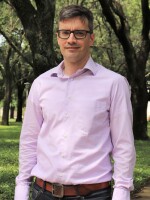For six weeks, Florida Matters will explore how the state's population boom is affecting important issues in our lives. In "Our Changing State," we’ll share stories from local residents about how change has affected them. We'll then invite experts in to answer questions you and your neighbors submitted through an online survey about each of these issues.
In the second part of our series, we’re talking about the environment.
Wild lands and wildlife are a big part of what Floridians — both new arrivals and people who have been here for generations — love about the state.
But all these people are squeezing in alongside the natural environment. Florida’s population grew by more than 400,000 people between 2021 and 2022. That’s more than the entire population of the city of Tampa.
Florida also faces a tough challenge: how to preserve the natural environment while welcoming tourists that help power our economy. And through development or climate change, wild places are transforming and, in some cases, disappearing.
Below you'll hear from a Pinellas County resident about his experience watching growth change a barrier island he's visited since childhood:
On the southern end of Tarpon Springs is St. Joseph Sound, a bay which is fed by the Gulf of Mexico.
Chris Powell, 52, has been boating to Three Rooker Island in the bay since he was 3 years old.
Powell speaks to WUSF's Jessica Meszaros about how he's watched the island erode over the years with more and more visitors docking their boats onto it. They talk on Powell's boat floating a few feet away from the island, which houses many boisterous birds.

Later in the show, host Matthew Peddie talks with wildlife photographer Carlton Ward Jr. and Pinellas County Government Sustainability and Resiliency Coordinator Hank Hodde. They are answering the questions you posed for our expert panel.
Here's a sampling of questions and comments submitted through our online survey (some have been edited for length and clarity):
Water quality and pollution of the beaches and ocean — single use plastics are a problem — bags, bottles, containers, NOT straws! — M. Vaughn, Monroe County
Carlton: I might have a different view on Florida because I've spent the past 15 years advocating for a wildlife corridor through the middle part of the state. The beaches are all connected to it. But I've started to look at the state from the inside out rather than from the outside in.
And a lot of our problems on the coast have to do with overdevelopment in places where they might not be compatible or sustainable, but those problems are caused by development or issues upstream. Florida is in a unique situation. I think, among a lot of neighboring states. Most of our river systems and most of our watersheds originate here within the Florida peninsula, aside from maybe the Apalachicola or some rivers in the Panhandle. We can't point the finger at another state for our water problems. The Everglades originates in Orlando and the headwaters in Central Florida. The St. Johns River originates in Central Florida.
So coastal pollution, watershed pollution, estuary pollution: it's from things that we are causing by not being sustainable enough in our practices. So it's kind of a wake-up call and I look at the way the health of the estuaries, the health of the beach — everything is downstream from what we do on land.
Polluted waterways crumbling and poorly maintained infrastructure, roads, power, sewer water, leave folks without power and clean burning water regularly before we have a serious natural disaster. — Deb Hankinson, Leesburg
Hank: The tough part is the community is already there. So I'm trying to embed resiliency within the infrastructure that exists and build the capacity to deal with shocks and stresses. And now we have a multitude of them. In the past, that may have just been hurricanes. But now we have housing issues. We have insurance issues. We have just general affordability issues. Electricity is increasing so now we have to think about not just hardening our infrastructure but hardening our homes and hardening the grid.
It's getting hotter and hotter and the infrastructure is aging. It's in the same light with flooding. It's getting wetter and infrastructure is aging. So we're trying to keep up with that ... to create stronger, more resilient infrastructure when we do maintenance or we do replacements of anything from a small pump to a big bridge.
Next week: Transportation
You can listen to the full conversation by clicking on the “Listen” button above. Or you can listen on the WUSF app under “Programs & Podcasts.







